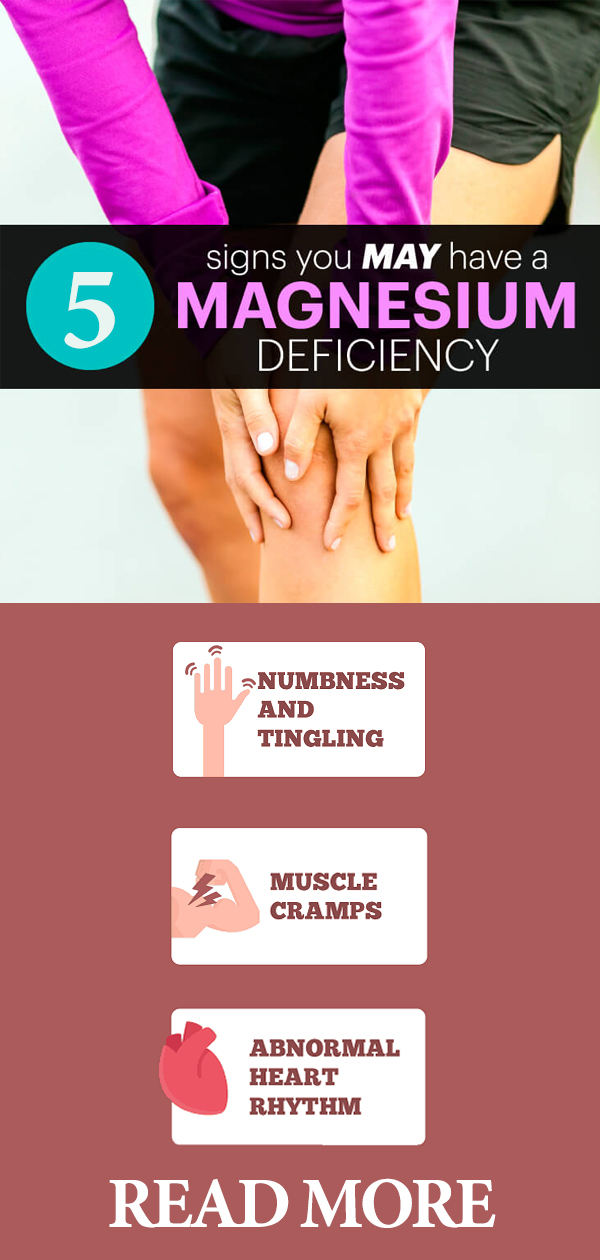Magnesium is the fourth most abundant mineral in our bodies, and its role in our overall health may have been underestimated until recently. This mineral can be found in over 300 different enzymes in the human body. It is also a key player in the body’s detoxification process.
Proper levels of magnesium are also needed for:
- Activating muscles and nerves
- Creating energy in your body
- Efficiently digesting proteins, carbohydrates, and fats
Being deficient in magnesium is often referred to as the “invisible deficiency” because it’s hard to detect. Only 1% of our body’s magnesium is stored in the blood. The rest reside in our organs and bones, and there it is used for a variety of biological functions. This means a blood test isn’t enough to determine if there is a deficiency.
Because it’s difficult to measure, having a deficiency is a real possibility. Dr. Danine Fruge, Associate Medical Director at the Pritikin Longevity Center in Miami, Florida, says only about 25% of U.S. adults meet the recommended daily amount of magnesium. That means 75% of us aren’t getting enough of this vital mineral in our diet.
Magnesium is often thought of as a mineral just for your heart and bones, which is misleading. Researchers have now found 3,751 magnesium-binding sites on human proteins, which shows its role in human health and disease may be misunderstood.
In fact, studies show that severe magnesium deficiencies play a role in the top four killers:
- Cancer (all types)
- Ischaemic heart disease
- Stroke
- Diabetes
These diseases not only kill, but they also affect the quality of life for both for the victim and their families.
Dr. Carol Dean, the author of The Magnesium Miracle, listed 22 scientifically-proven medical areas that a deficiency in this mineral can trigger or cause. These include:
- Anxiety and panic attacks
- Asthma
- Blood clots
- Bowel diseases
- Cystitis
- Depression
- Detoxification
- Diabetes
- Fatigue
- Heart Disease
- Hypertension
- Hypoglycemia
- Insomnia
- Kidney disease
- Liver disease
- Migraines
- Female medical conditions
- Osteoporosis
- Raynaud’s syndrome
- Tooth decay
What Causes A Magnesium Deficiency?
With an estimated 75 percent of the US population suffering from a magnesium deficiency, it’s important to understand the reasons why. Here are four reasons you may be suffering from a magnesium deficiency:
- Diet. Mass-produced foods are often stripped of this natural mineral. Therefore, try eating a diet rich in natural, organic, and whole foods. At the same time, avoid processed foods.
- Sweets. For every molecule of sugar we eat, our bodies require 54 molecules of magnesium to process it.
- Stress. Stress hormone production uses magnesium. The more stressed we are, the more we deplete our stores of this mineral.
- Medication. The drugs we take to regulate blood pressure and treat other diseases work to deplete magnesium levels.
5 Signs Of A Magnesium Deficiency
Early signs of magnesium deficiency include physical and mental fatigue, muscle weakness, loss of appetite, nausea, and headaches. An especially relevant point is that the real danger lies in an ongoing deficiency. Longer-term and more severe signs may include:
- Numbness and tingling in your arms and legs
- Muscle spasms and cramps
- Abnormal heart rhythms
- Depression and other personality changes
- Migraines
How To Get More Magnesium
The good news, however is that it’s almost impossible to overdose on magnesium. There are, however, side effects of consuming too much of this mineral. These can include slow breathing and an irregular heartbeat.
The best course of action when trying to increase your intake of any vitamin or mineral is to take it in naturally through your food. Here is where organic eating can play a role. Most of the food grown for mass production is lower in natural minerals, which are depleted due to top soil being overused and sprayed with pesticides.
Some foods high in magnesium include:
- Seeds, specifically sunflower, but also pumpkin and sesame seeds
- Dark leafy greens, specifically spinach, kale, and Swiss chard
- Nuts, specifically almonds, cashews, and pine nuts
- Avocados
- Bananas
- Dark Chocolate
- Yogurt
Here are other ways you can increase your magnesium intake:
- First, you can enjoy a soak in Epsom salts. It not only provides a healthy dose of this vital mineral, but also helps pull toxins from your skin.
- Another way to increase intake is by rubbing magnesium oil into your skin. Your skin absorbs up to 70% of what is applied to it, and quickly puts it to work in your body.
- Finally, you might want to take a magnesium supplement. Not all supplements are created equal, so check with your doctor or naturopath for their recommendations.
It’s important to listen to your body. While a magnesium deficiency can contribute to many ailments, it doesn’t mean this is always the problem.
This article was written to help spread the awareness of magnesium deficiency, yet it is not intended to act as medical advice. Because it is possible to mid-diagnose, please avoid self-diagnosis. Visit your wellness advocate if specific symptoms persist.


